Greening the Greyfields
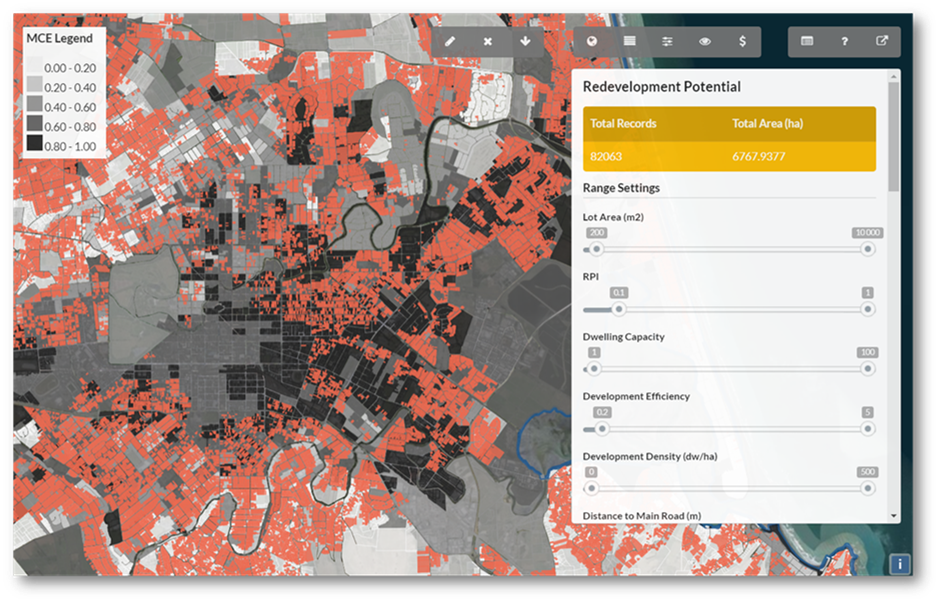
Research team Simon Kingham Rita Dionisio Funding CRCSI Duration 2017 Collaborators Christchurch City Council, Curtin University and Swinburne University Project summary The CRCSI ‘Greening the Greyfields’ project was a joint NZ/Australia project to develop a set of strategies and decision-making tools based on the strategic application of geospatial information to urban planning with a view […]
Carbon Neutral Neighbourhoods dashboard development
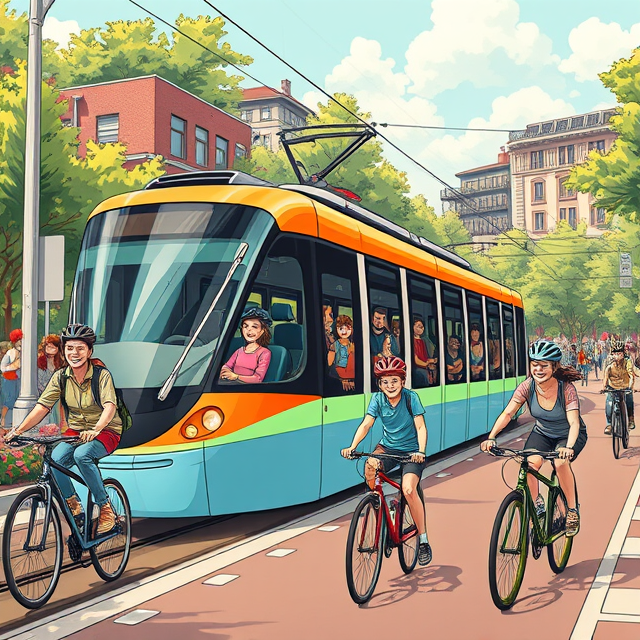
Research team Malcolm Campbell (GeoHealth Lab – UoC) Lindsey Conrow (SEE – UoC) Tom Logan (Civil and Natural Resources Engineering – UoC) Simon Kingham (SEE – UoC) Dashboard development: Malcolm Campbell (GeoHealth Lab – UoC) Luke Parkinson (GRI – UoC) Matthew Wilson (GRI – UoC) Funding BRANZ – Funded from the Building Research Levy Duration […]
Urban Trees and Housing Intensification: A Spatial Conflict?
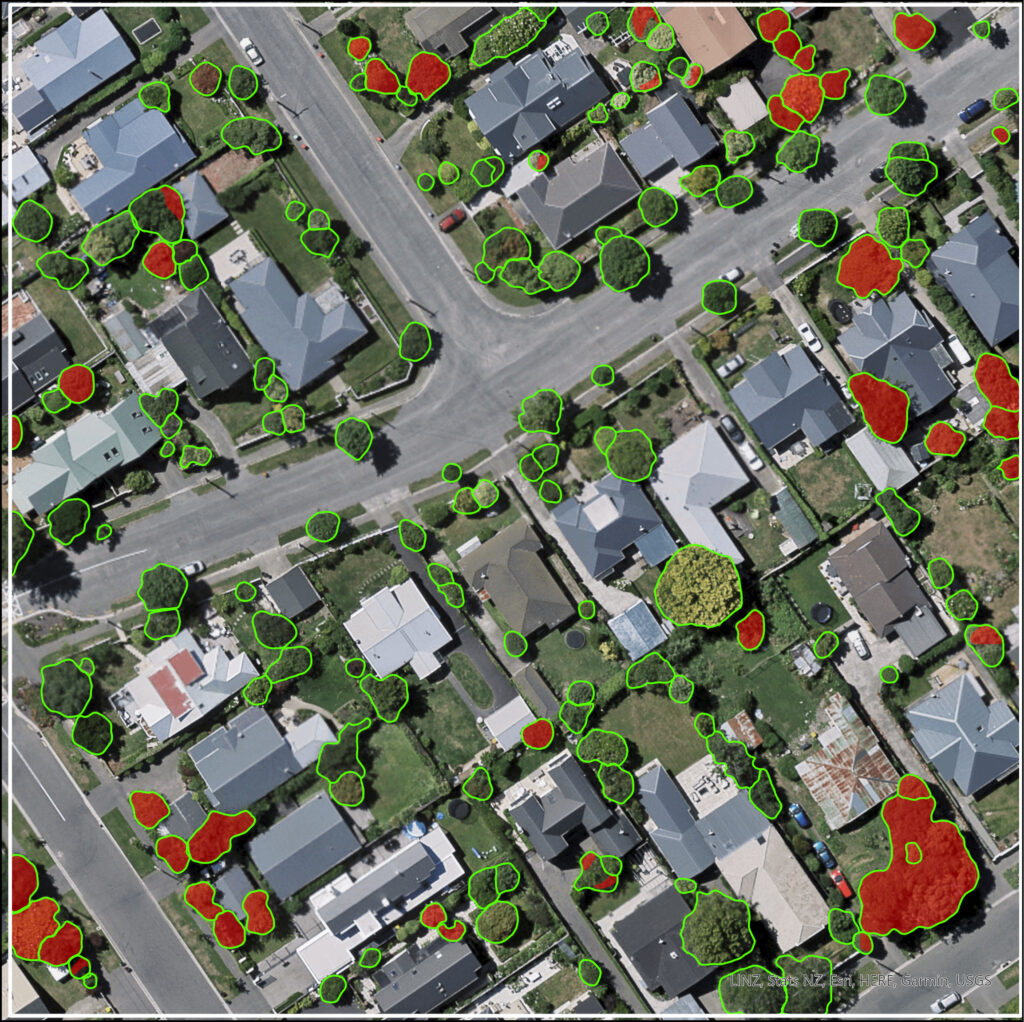
PhD Student David Pedley (SoF- GRI) Supervisors Dr Justin Morgenroth (UoC) Dr Grant Pearse (Flinders University) Funding GRI Scholarship and UC Doctoral Scholarship Project summary Urban trees provide a multitude of environmental and amenity benefits for city occupants yet face ongoing risk of removal due to urban pressures and the preferences of private landowners. Understanding […]
Building urban development scenarios into assessments of future flood risk
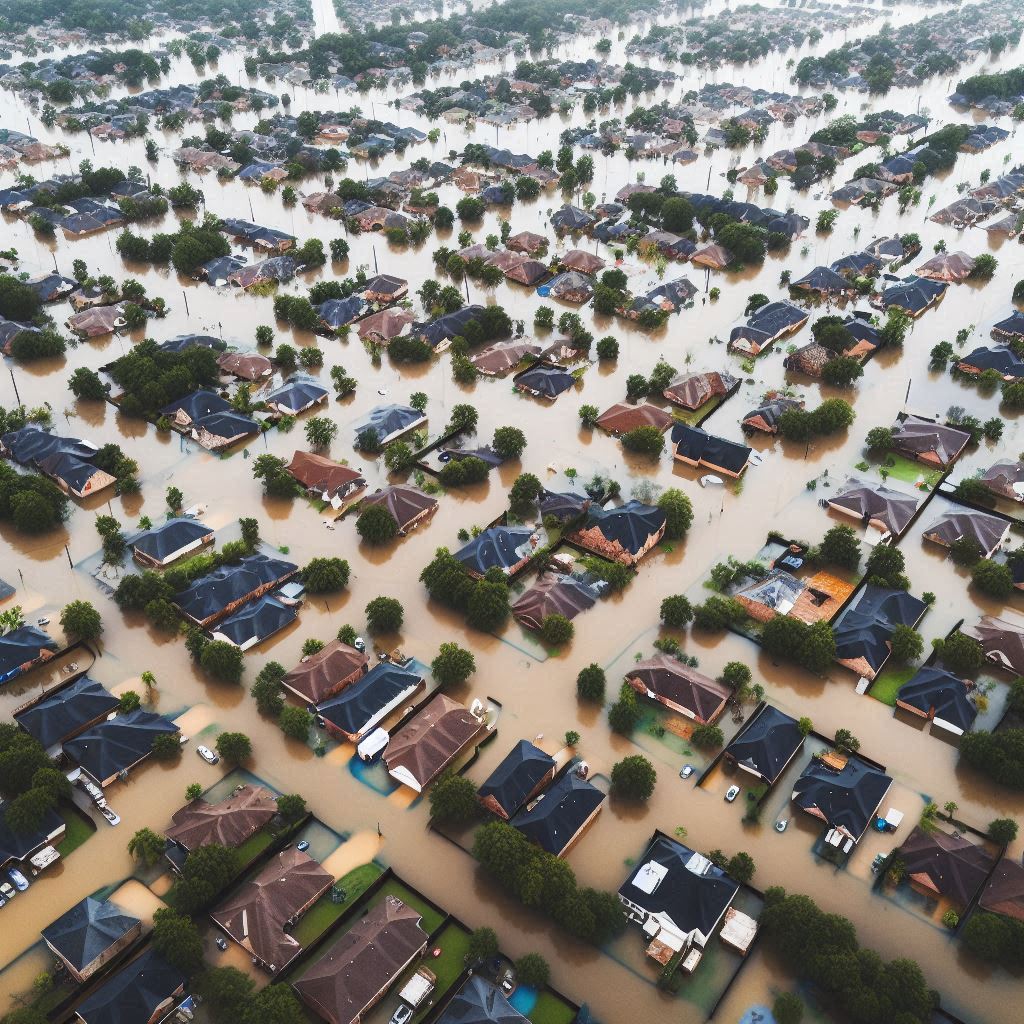
PhD student:Katherine Booker (UoW) Supervisors:Iain White (UoW)Matthew Wilson (GRI – UoC)Xinyu Fu (UoW) Funding:MBIE Endeavour Research Programme – Increasing flood resilience across Aotearoa, New Zealand Duration of ProjectPhD May 2023 – May 2026 (3 years) Summary:The devastating impact of flood events around the globe demonstrates the need for more comprehensive assessments of future flood risk […]
Map-based tools for Community and Rūnanga-led sustainable town planning, in small and medium settlements in New Zealand

Researchers: Rita Dionisio (Principal investigator, GRI and SEE-TKA) Dean Walker (Post-doctoral fellow GRI) Ines Falco (Software developer GRI) Sharmila Savarimuthu (Software developer GRI) Luke Parkinson (Software developer GRI) Professor Hirini Matunga (key researcher, Lincoln University) Professor Angus Macfarlane (key researcher, UC, Te Arawa and Ngāti Whakaue) Professor Simon Kingham (key researcher, UC) Collaborators: Ruiha and […]
Map-based tools for community and Runanga-led sustainable town planning
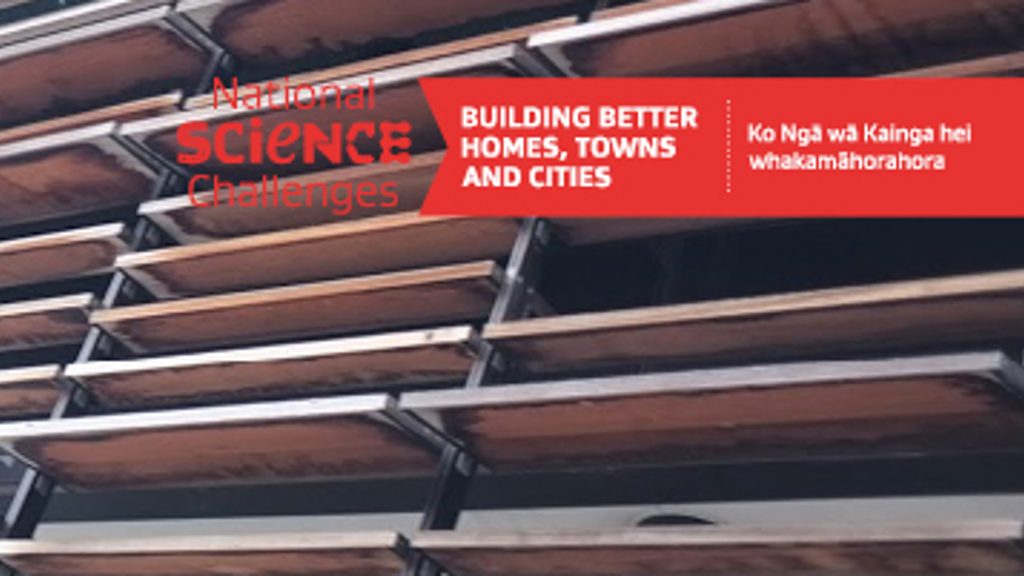
Building Better Homes, Towns and Cities Next Generation Information for Better Outcomes Overview Map-based tools for community and Runanga-led sustainable town planning Research Team: Simon Kingham Rita Dionisio-McHugh Mirjam Schindler Duration 2017 Funding MBIE Project summary Current urban and town planning processes in Aotearoa present few ways to include local knowledge and bicultural views in […]
Geospatial data availability, quality, needs
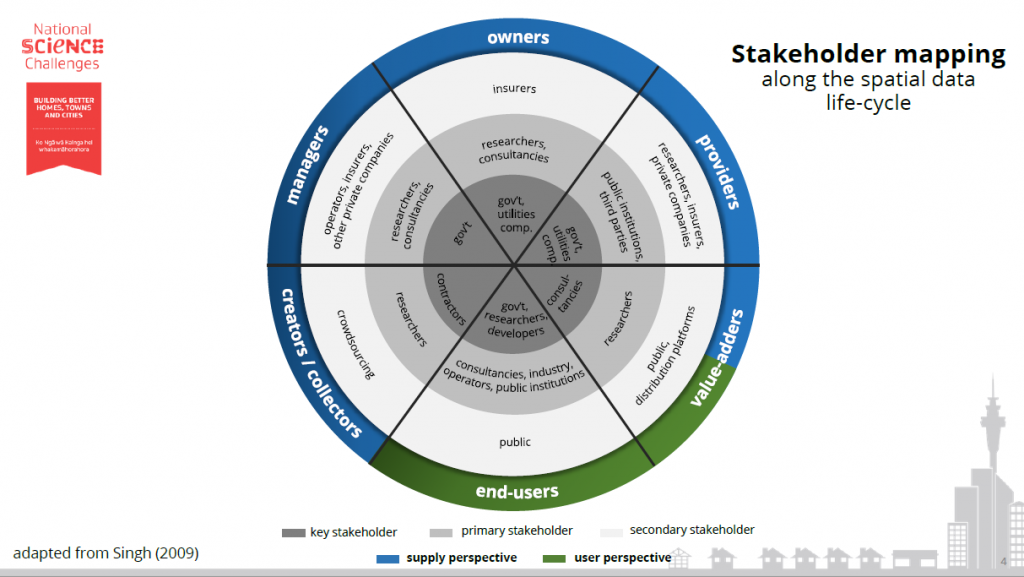
Building Better Homes, Towns and Cities Next Generation Information for Better Outcomes Project 2 Geospatial tools for better decision-making in urban planning Research Team: Simon Kingham Mirjam Schindler Rita Dionisio-McHugh Duration 2017 Funding MBIE Project summary New Zealand’s urban planning community faces challenges regarding the availability and accessibility of fit-for-purpose (spatial) data. Gaining useful information about […]
The Building Better Homes Towns and Cities: Ko ngā wā kāinga hei whakamahorahora
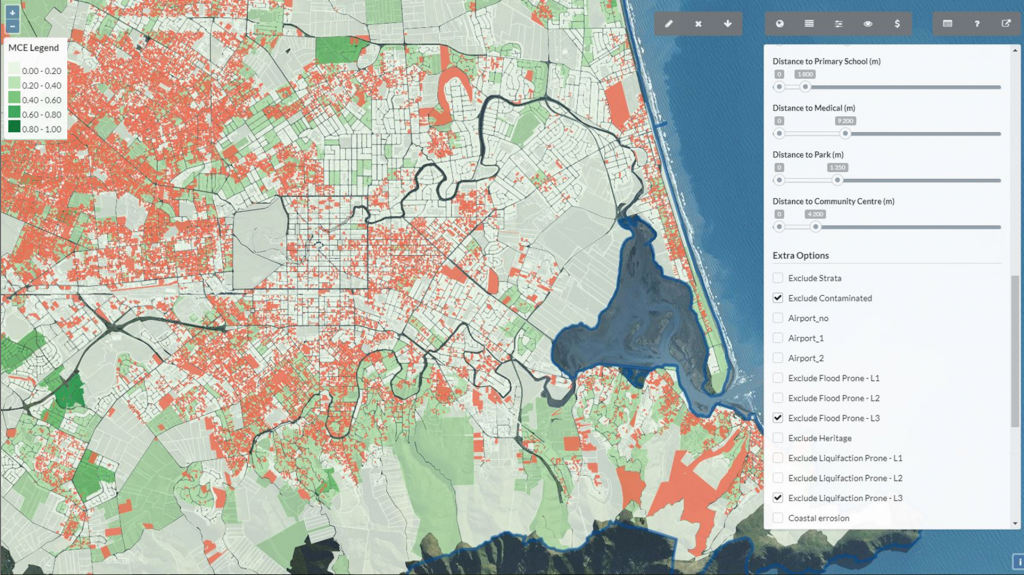
Building Better Homes, Towns and Cities Next Generation Information for Better Outcomes Overview The Building Better Homes Towns and Cities: Ko ngā wā kāinga hei whakamahorahora Research team Simon Kingham Rita Dionisio Mirjam Schindler Duration 2017 Funding MBIE Project summary The Building Better Homes Towns and Cities: Ko ngā wā kāinga hei whakamahorahora National Science […]
Geospatial tools for better decision-making in urban planning
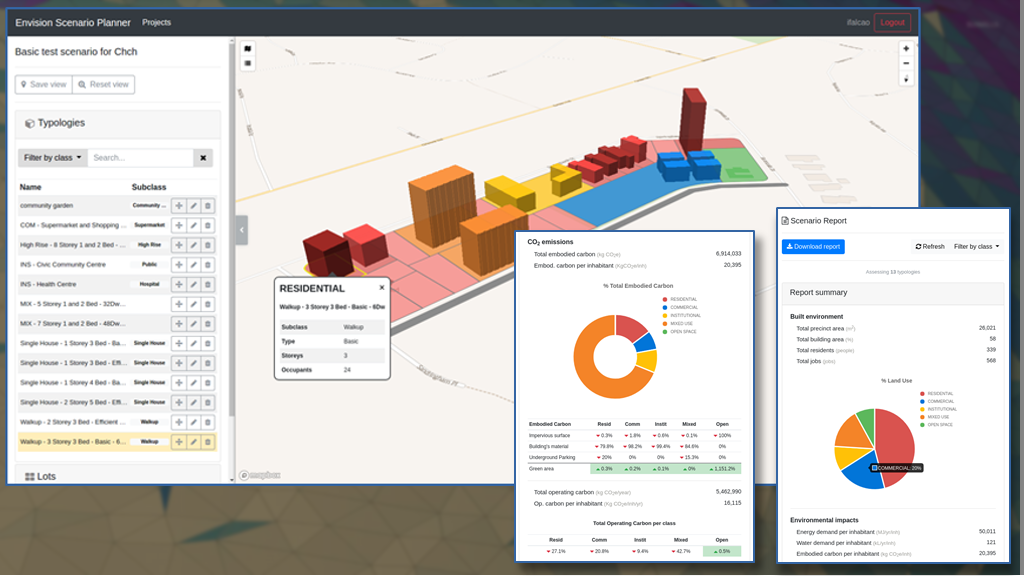
Urban planning and regeneration in Aotearoa is posed with a number of complexities, related to how decisions are informed through current evidence for better social, environmental and economic outcomes at the city and neighbourhood scales.
